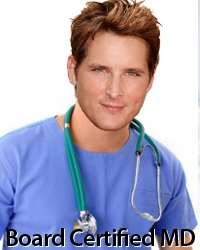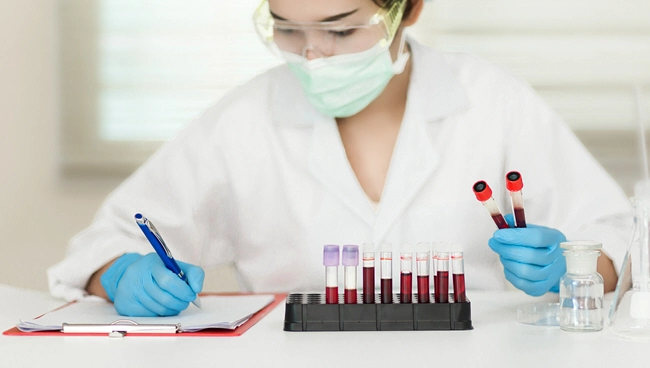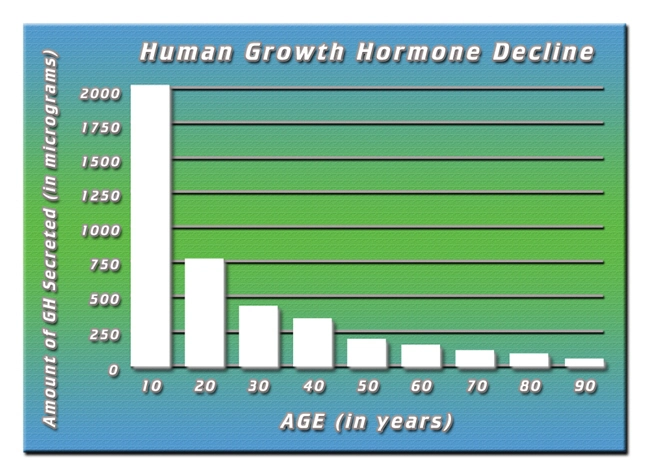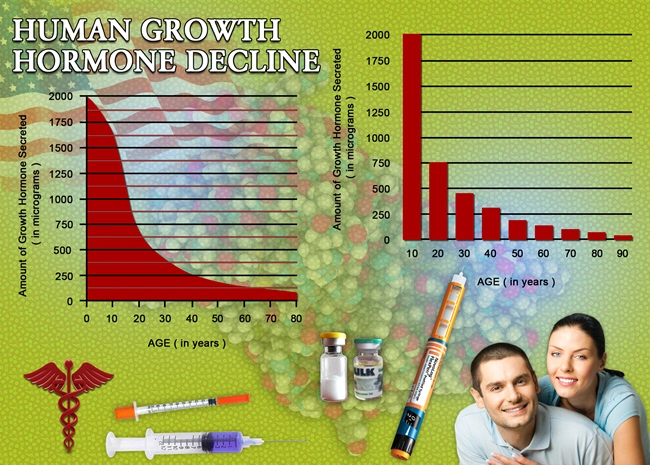
Introduction to Testicular Health
Testicular health is a critical aspect of male wellness that often goes overlooked in broader health discussions. The testes, vital for both reproductive and hormonal functions, are susceptible to various conditions that can significantly impact a man's quality of life. From testicular cancer to varicoceles and infections, the range of potential health issues underscores the need for increased awareness and proactive health policies tailored to American males.
The Prevalence of Testicular Conditions
In the United States, testicular cancer, though relatively rare, is the most common cancer among young men aged 15 to 35. According to the American Cancer Society, about 1 in 250 males will develop testicular cancer at some point during their lifetime. Beyond cancer, conditions such as epididymitis, orchitis, and varicoceles also pose significant health risks. These conditions not only affect fertility but can also lead to chronic pain and other complications if left untreated.
Current Health Policy and Gaps
Despite the clear need for focused attention on testicular health, current health policies in the U.S. often fail to prioritize this area. Routine screening for testicular cancer, for example, is not typically recommended by major health organizations, which can lead to late diagnoses and poorer outcomes. Moreover, public health campaigns aimed at educating men about testicular self-exams and the importance of regular check-ups are not as widespread as those for other cancers, such as breast and prostate cancer.
Advocacy Needs and Strategies
To address these gaps, a multi-faceted advocacy approach is essential. First, there must be a push for increased funding and research into testicular health. This would not only enhance our understanding of these conditions but also lead to better diagnostic tools and treatments. Second, advocacy groups should work to influence health policy to include regular testicular health screenings as part of standard preventive care for men.
Additionally, public awareness campaigns are crucial. These should be designed to educate men about the importance of self-exams and the signs of testicular conditions. Such campaigns could be modeled after successful initiatives like Movember, which has significantly raised awareness about men's health issues, including prostate cancer and mental health.
The Role of Technology and Innovation
Technology can play a pivotal role in advancing testicular health advocacy. Mobile apps that guide men through self-exams and provide reminders for regular check-ups could be developed. Telemedicine platforms could also be utilized to make it easier for men to consult with healthcare providers about any concerns they might have, thus reducing barriers to care.
Community and Cultural Considerations
It's important to recognize that cultural attitudes towards discussing and addressing testicular health can vary widely. Advocacy efforts must be sensitive to these differences and work to destigmatize conversations about male reproductive health. Community-based programs that engage local leaders and organizations can be particularly effective in reaching diverse populations and fostering a culture of proactive health management.
Conclusion: A Unified Approach to Testicular Health
The advocacy for better testicular health policies and increased awareness is not just a medical necessity but a societal imperative. By uniting healthcare providers, policymakers, advocacy groups, and the community, we can create a more informed and proactive approach to testicular health. American males deserve a healthcare system that prioritizes their well-being, and it starts with recognizing and addressing the unique challenges they face regarding testicular health.
Contact Us Today For A Free Consultation
Dear Patient,
Once you have completing the above contact form, for security purposes and confirmation, please confirm your information by calling us.
Please call now: 1-800-380-5339.
Welcoming You To Our Clinic, Professor Tom Henderson.

- Navigating Life After Testicular Cancer: Health, Fertility, and Emotional Well-being [Last Updated On: March 15th, 2025] [Originally Added On: March 15th, 2025]
- Regular Check-ups Crucial for American Men's Testicular Health and Early Issue Detection [Last Updated On: March 17th, 2025] [Originally Added On: March 17th, 2025]
- Testicular and Prostate Health: A Holistic Guide for American Men [Last Updated On: March 17th, 2025] [Originally Added On: March 17th, 2025]
- Testicular Health Education: Vital for Young American Males' Well-being [Last Updated On: March 18th, 2025] [Originally Added On: March 18th, 2025]
- Diabetes Impact on Testicular Health: Risks, Management, and Prevention for American Men [Last Updated On: March 18th, 2025] [Originally Added On: March 18th, 2025]
- Testicular Health and Mental Well-being: A Holistic Guide for American Males [Last Updated On: March 18th, 2025] [Originally Added On: March 18th, 2025]
- Exercise Boosts Testicular Health: Benefits for American Males [Last Updated On: March 19th, 2025] [Originally Added On: March 19th, 2025]
- Economic Impact of Testicular Cancer Treatment on American Males: Challenges and Policy Needs [Last Updated On: March 19th, 2025] [Originally Added On: March 19th, 2025]
- Exploring Testicular Health: Causes, Diagnosis, and Advanced Treatment Options for Infertility [Last Updated On: March 20th, 2025] [Originally Added On: March 20th, 2025]
- Testicular Health's Impact on Cardiovascular Disease in American Men: Research and Prevention [Last Updated On: March 20th, 2025] [Originally Added On: March 20th, 2025]
- Testicular Health: Understanding Conditions, Testosterone, and HRT for American Men [Last Updated On: March 21st, 2025] [Originally Added On: March 21st, 2025]
- Stress Impact on Testicular Health and Fertility in American Men [Last Updated On: March 21st, 2025] [Originally Added On: March 21st, 2025]
- Testicular Health: Risks of Anabolic Steroids and Mitigation Strategies for American Men [Last Updated On: March 22nd, 2025] [Originally Added On: March 22nd, 2025]
- Psychological Barriers to Testicular Health Care in American Men: Causes and Solutions [Last Updated On: March 22nd, 2025] [Originally Added On: March 22nd, 2025]
- Testicular Pain: Causes, Diagnosis, and Treatment Options for American Men [Last Updated On: March 22nd, 2025] [Originally Added On: March 22nd, 2025]
- Testicular Health: Importance, Self-Exams, Cancer, and Breaking Stigma for American Men [Last Updated On: March 22nd, 2025] [Originally Added On: March 22nd, 2025]
- Chemotherapy's Impact on Testicular Health in American Male Cancer Survivors [Last Updated On: March 23rd, 2025] [Originally Added On: March 23rd, 2025]
- Sleep Quality's Vital Role in Enhancing Testicular Health and Function [Last Updated On: March 23rd, 2025] [Originally Added On: March 23rd, 2025]
- Testicular Health: Vital for Preventing Chronic Diseases in American Males [Last Updated On: March 23rd, 2025] [Originally Added On: March 23rd, 2025]
- Ultrasound: A Vital Tool for Testicular Health Diagnosis and Monitoring in American Males [Last Updated On: March 23rd, 2025] [Originally Added On: March 23rd, 2025]
- Testicular Health and Aging: Hormonal Changes, Conditions, and Treatments for Men [Last Updated On: March 23rd, 2025] [Originally Added On: March 23rd, 2025]
- Radiation Therapy's Impact on Testicular Health in American Males: Risks and Management [Last Updated On: March 24th, 2025] [Originally Added On: March 24th, 2025]
- Smoking's Harmful Effects on Testicular Health and Fertility in American Males [Last Updated On: March 24th, 2025] [Originally Added On: March 24th, 2025]
- Illicit Drugs' Impact on Testicular Health: Risks and Implications for American Men [Last Updated On: March 24th, 2025] [Originally Added On: March 24th, 2025]
- Antioxidants: Essential for American Men's Testicular Health and Fertility [Last Updated On: March 24th, 2025] [Originally Added On: March 24th, 2025]
- Socioeconomic Disparities in Testicular Health Care Access Among American Males [Last Updated On: March 24th, 2025] [Originally Added On: March 24th, 2025]
- Testicular Cancer Screening: Guidelines for Self-Exams and Early Detection in American Men [Last Updated On: March 25th, 2025] [Originally Added On: March 25th, 2025]
- Public Health Campaigns Boost Testicular Health Awareness in American Men [Last Updated On: March 25th, 2025] [Originally Added On: March 25th, 2025]
- Lifestyle Diseases and Their Impact on Testicular Health in American Men [Last Updated On: March 25th, 2025] [Originally Added On: March 25th, 2025]
- Nutrition's Role in Enhancing Testicular Health for American Men [Last Updated On: March 25th, 2025] [Originally Added On: March 25th, 2025]
- Occupational Hazards Impacting Testicular Health in American Male Workers: Risks and Prevention [Last Updated On: March 25th, 2025] [Originally Added On: March 25th, 2025]
- Testicular Health and Autoimmune Disorders: Impact, Management, and Prevention Strategies [Last Updated On: March 26th, 2025] [Originally Added On: March 26th, 2025]
- Long-Term Testicular Health Strategies for American Cancer Survivors [Last Updated On: March 26th, 2025] [Originally Added On: March 26th, 2025]
- Viral Infections and Testicular Health: Impacts on American Males' Fertility and Well-being [Last Updated On: March 26th, 2025] [Originally Added On: March 26th, 2025]
- Testicular Health: Functions, Conditions, and Fertility Preservation Options for American Males [Last Updated On: March 26th, 2025] [Originally Added On: March 26th, 2025]
- Enhancing Testicular Health Awareness and Education for American Males [Last Updated On: March 26th, 2025] [Originally Added On: March 26th, 2025]
- Endocrine Disruptors and Testicular Health: Risks and Mitigation for American Males [Last Updated On: March 26th, 2025] [Originally Added On: March 26th, 2025]
- Exercise Benefits for Testicular Health in American Men: A Scientific Insight [Last Updated On: March 26th, 2025] [Originally Added On: March 26th, 2025]
- Vitamins and Minerals: Enhancing Testicular Health in American Men [Last Updated On: March 26th, 2025] [Originally Added On: March 26th, 2025]
- Community Support Enhances Testicular Health Awareness and Outcomes in American Males [Last Updated On: March 27th, 2025] [Originally Added On: March 27th, 2025]
- Testicular Health and Reproductive Rights: A Comprehensive Guide for American Men [Last Updated On: March 27th, 2025] [Originally Added On: March 27th, 2025]
- Genetic Counseling: A Proactive Approach to Preventing Testicular Cancer in American Males [Last Updated On: March 27th, 2025] [Originally Added On: March 27th, 2025]
- Alcohol's Impact on Testicular Health: Risks and Mitigation Strategies for American Men [Last Updated On: March 27th, 2025] [Originally Added On: March 27th, 2025]
- Modern Lifestyles and Testicular Health: Challenges and Guidance for American Men [Last Updated On: March 27th, 2025] [Originally Added On: March 27th, 2025]
- Testicular Health and Environmental Impact: A Comprehensive Guide for American Males [Last Updated On: March 27th, 2025] [Originally Added On: March 27th, 2025]
- Testicular Health: Understanding Psychological Impacts and Promoting Holistic Care for Men [Last Updated On: March 27th, 2025] [Originally Added On: March 27th, 2025]
- Testicular Health and Mental Well-being: Breaking Stigma Through Education and Advocacy [Last Updated On: March 28th, 2025] [Originally Added On: March 28th, 2025]
- Testicular Health and Immune System: A Holistic Approach for American Males [Last Updated On: March 28th, 2025] [Originally Added On: March 28th, 2025]
- Support Groups: Vital for American Men with Testicular Cancer [Last Updated On: March 28th, 2025] [Originally Added On: March 28th, 2025]
- Telemedicine Revolutionizes Testicular Health Services for American Men [Last Updated On: March 28th, 2025] [Originally Added On: March 28th, 2025]
- Managing Chronic Testicular Pain: Strategies for American Males [Last Updated On: March 29th, 2025] [Originally Added On: March 29th, 2025]
- Testicular Health: Understanding Conditions and Preventive Measures for American Men [Last Updated On: March 30th, 2025] [Originally Added On: March 30th, 2025]
- Heat Exposure's Impact on Testicular Health in American Men: Risks and Mitigation Strategies [Last Updated On: March 30th, 2025] [Originally Added On: March 30th, 2025]
- Herbal Supplements for Enhancing Testicular Health in American Men [Last Updated On: April 1st, 2025] [Originally Added On: April 1st, 2025]
- Testicular Health and Mental Resilience: A Comprehensive Guide for American Men [Last Updated On: April 3rd, 2025] [Originally Added On: April 3rd, 2025]
- Advancements in Testicular Health: Innovations in Cancer, Infertility, and Hormonal Therapies [Last Updated On: April 5th, 2025] [Originally Added On: April 5th, 2025]
- Antibiotics' Impact on Testicular Health in American Men: Risks and Preventive Measures [Last Updated On: April 5th, 2025] [Originally Added On: April 5th, 2025]
- Mental Health Professionals' Vital Role in American Men's Testicular Health Care [Last Updated On: April 6th, 2025] [Originally Added On: April 6th, 2025]
- Enhancing Testicular Health: Strategies for American Males [Last Updated On: April 7th, 2025] [Originally Added On: April 7th, 2025]
- Pesticide Exposure and Testicular Health: Risks and Prevention in American Men [Last Updated On: April 7th, 2025] [Originally Added On: April 7th, 2025]
- Environmental Policies Crucial for American Male Testicular Health and Cancer Prevention [Last Updated On: April 9th, 2025] [Originally Added On: April 9th, 2025]
- Physical Therapy: A Non-Invasive Approach to Managing Testicular Health Issues in Men [Last Updated On: April 10th, 2025] [Originally Added On: April 10th, 2025]
- Community Health Workers: Vital in Enhancing Testicular Health Awareness in American Men [Last Updated On: April 11th, 2025] [Originally Added On: April 11th, 2025]
- Heavy Metals' Impact on Testicular Health in American Men: Risks and Prevention [Last Updated On: April 11th, 2025] [Originally Added On: April 11th, 2025]
- Plastic Exposure's Impact on Testicular Health in American Men: Emerging Research and Mitigation [Last Updated On: April 11th, 2025] [Originally Added On: April 11th, 2025]
- Understanding Testicular Health: Anatomy, Disorders, and Self-Care for American Males [Last Updated On: April 12th, 2025] [Originally Added On: April 12th, 2025]
- Promoting Testicular Health Through U.S. Workplace Wellness Programs [Last Updated On: April 13th, 2025] [Originally Added On: April 13th, 2025]
- Testicular Health: Functions, Disorders, and U.S. Policy Impacts on Men's Well-being [Last Updated On: April 13th, 2025] [Originally Added On: April 13th, 2025]
- Testicular Health and Mental Wellness: A Holistic Approach for American Males [Last Updated On: April 15th, 2025] [Originally Added On: April 15th, 2025]
- Air Pollution's Impact on Testicular Health in American Men: Risks and Recommendations [Last Updated On: April 16th, 2025] [Originally Added On: April 16th, 2025]
- Educational Campaigns Boost Testicular Cancer Awareness and Early Detection in American Men [Last Updated On: April 17th, 2025] [Originally Added On: April 17th, 2025]
- Testicular Health: Nutrition, Monitoring, and Education for American Males [Last Updated On: April 18th, 2025] [Originally Added On: April 18th, 2025]
- Integrating Testicular and Mental Health Services for Holistic Male Care [Last Updated On: April 18th, 2025] [Originally Added On: April 18th, 2025]
- Water Contaminants' Impact on Testicular Health in American Men: Risks and Prevention [Last Updated On: April 20th, 2025] [Originally Added On: April 20th, 2025]
- Genetic Testing: Revolutionizing Testicular Health Management for American Men [Last Updated On: April 20th, 2025] [Originally Added On: April 20th, 2025]









